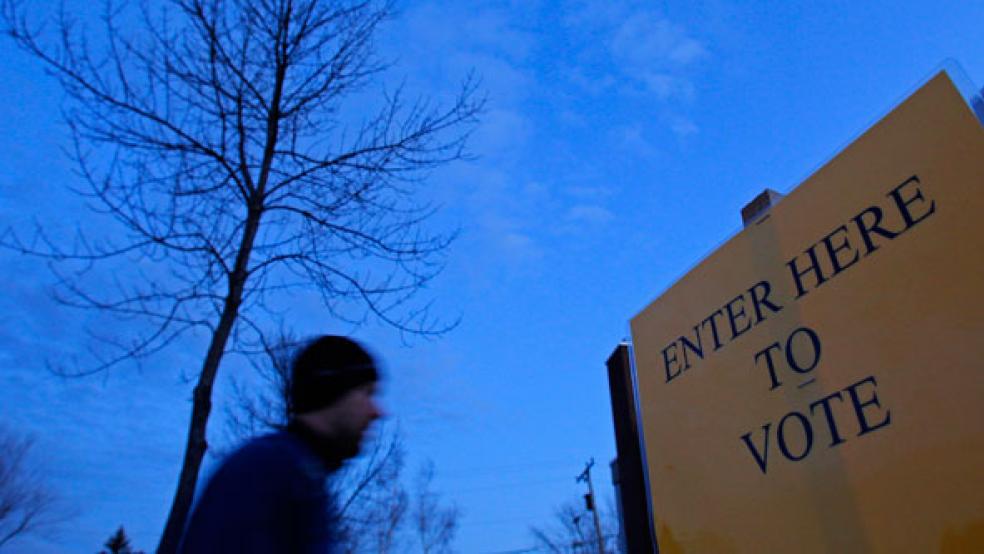The flinty-eyed denizens of the Granite State voting in today’s primary are not representative of the national Republican electorate, largely because New Hampshire’s open primary system allows independents to register their preference.
With no hotly contested Democratic race to capture their attention, independents could be the dominant factor in tonight’s outcome. Most will likely vote for the two centrist-leaning candidates in the race – frontrunner Mitt Romney and late surger Jon Huntsman. On the other hand, those crossovers mean today’s vote will be far more reflective of the nation as a whole than either the Iowa caucuses, where Mitt Romney squeaked out a narrow win, or the upcoming primary in South Carolina, a state that remains the backbone of a solid Republican south.
Even regular Republicans in New Hampshire are more like the nation as a whole. “It is a less religious and certainly less evangelically-oriented electorate,” said Michael Dimock, associate director of the Pew Research Center. “Even compared to western voters, they are less socially conservative.”
Wondering how to interpret tonight’s outcome? Here are seven things you need to know about the people behind the votes:
• Just 57 percent of tonight’s likely voters will be registered Republicans, according to the latest University of New Hampshire/WMUR poll. Another 20 percent will be Republican-leaning independents; 13 percent consider themselves independent of either party; and 10 percent self-identify as Democrats. “If they show up, it probably means they are considering voting Republican this year, but I don’t think that locks them in,” said Dimock.
• While Romney is drawing votes around the country based on the perception he has the best chance of defeating President Obama, New Hampshire voters rank “ability to defeat President Obama” third in their concerns (22 percent), behind “issues” (43 percent) and “leadership skills” (27 percent).
• Likely voters in the New Hampshire Republican primary are an older group, just as they are in most Republican contests. Just 10 percent will be 18 to 29, while 66 percent are over 46 and 25 percent over 65. However, young Republican voters in the “Live Free or Die” state favor libertarian Ron Paul over Romney by a 45-35 percent margin, according to a recent poll, which could give the Texas Congressman another strong showing.
• Just 21 percent of New Hampshire Republican voters consider themselves evangelical Christians, compared to an estimated 44 percent nationwide. Rick Santorum’s strong showing in Iowa was largely based on rural evangelicals, who are a much smaller presence in New England.
• Tea Party strength in New Hampshire is about equal to its strength nationwide. Twenty percent of the Republican electorate today supports or considers itself a member of that loosely-aligned group.
• John McCain won the 2008 New Hampshire primary, resuscitating his candidacy after a poor showing in Iowa. But his endorsement may hurt Romney, if it has any impact at all. Fifty percent of New Hampshire voters said the endorsement would have no influence on their vote, while another 28 percent said it would make them less likely to vote for the endorsee.
• Past and current results do not predict future performance. Fully 55 percent of likely GOP primary voters nationwide including those in New Hampshire said they were uncertain about whom they would vote for on the day after the Iowa caucuses, according to a recent Rasmussen poll. New Hampshire voters like to upset the apple cart. It could happen again.





